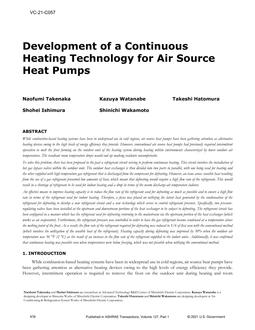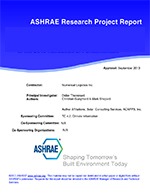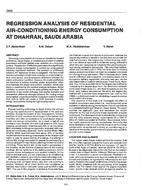Knowledge of room air distribution, including its flow and temperature characteristics, is very important to HVAC engineers. This study numerically predicts the air distribution in a room with differentially heated vertical walls. The Rayleigh number in the room is around 2.6~3×1010. Time averaged equations of continuity, momentum, and energy are numerically solved by the finite volume method. Three turbulence models, the “standard” k-sigma model, and two low-Reynolds-number k-e models, are employed to simulate turbulent natural convection in the room. The numerical results are compared with experimental data available and other related work. Good agreement occurs between the numerical results and the experimental data. Low-Reynolds-number effects and thermal radiation between the ceiling and floor are found to have important impacts on the flow pattern and the temperature distribution.
Units: Dual
Citation: Symposium, ASHRAE Transactions, 1998, Vol 104, pt. 1A, San Francisco
Product Details
- Published:
- 1998
- Number of Pages:
- 8
- File Size:
- 1 file , 190 KB
- Product Code(s):
- D-7874


